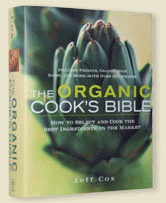Monsanto’s Chickens Coming Home to Roost
Organic Lifestyle Comments Off on Monsanto’s Chickens Coming Home to Roost
Looks like cancer lawsuits against Monsanto are gaining country-wide momentum. Reuters reports that personal injury law firms around the U.S. are gathering numerous plaintiffs to build “mass tort actions” alleging that exposure to the company’s popular weedkiller, Roundup, causes cancer, according to Lorraine Chow, writing in Ecowatch.
EcoWatch was informed by Monsanto’s spokeswoman Charla Lord that one suit, by horticultural worker Judi Fitzgerald, who attributes her leukemia to exposure to Roundup, was “voluntarily dismissed without prejudice” in New York. But then Ecowatch learned that the Fitzgerald case was added to a recently filed Delaware suit.
When EcoWatch contacted Weitz & Luxenberg, the law firm representing Fitzgerald, Robin Greenwald, the head of the firm’s environmental law unit, told us: “For clarification, we added Ms. Fitzgerald to a complaint we filed in Delaware. So we dismissed the suit in New York and refiled in Delaware state court, closer to her home and where Monsanto is incorporated.”
“Decades of experience within agriculture and regulatory reviews using the most extensive worldwide human health databases ever compiled on an agricultural product contradict the claims in the suit which will be vigorously defended,” Monsanto’s Lord said last month.
It appears, however, more and more plaintiffs are lining up to make cases against the embattled agribusiness giant, which is facing slumping earnings and recently announced it will eliminate 12 percent of its workforce.
“We can prove that Monsanto knew about the dangers of glyphosate,” Michael McDivitt, whose Colorado law firm is arranging cases for 50 individuals, told Reuters. “There are a lot of studies showing glyphosate causes these cancers.” His firm is advertising free case evaluations and hosted town hall gatherings in August in Kansas, Missouri, Iowa and Nebraska to seek clients.
Baltimore-based firm Saiontz & Kirk, Washington, DC-based firm Schmidt & Clark, as well as firms in Texas, Colorado and California are also advertising similar Roundup lawsuit evaluations to find plaintiffs, Reuters observed. According to Reuters, the attorneys are citing strong evidence that links glyphosate to non-Hodgkin lymphoma and said they will likely collaborate as mass tort actions against Monsanto.
***
HERE’S WHY ORGANIC GRASS-FED BEEF IS BETTER FOR YOU
Grass-fed beef tends to be higher in some nutrients, and studies suggest it may contain fewer bacteria that can cause food poisoning — which could be good for your health, according to the Ask Well feature of The New York Times.
Grass-fed can mean a lot of things. But the American Grassfed Association, which has a certification program, refers to grass-fed animals “as those that have eaten nothing but grass and forage from weaning to harvest, have not been raised in confinement, and have never been fed antibiotics or growth hormones.”
In a report earlier this month, Consumer Reports tested 300 samples of beef purchased at stores across the United States and determined that beef from conventionally raised cattle was three times as likely as grass-fed beef to contain bacteria resistant to multiple antibiotics, posing a food poisoning threat. The report recommended that consumers choose grass-fed organic beef “whenever possible.”
Consumers who wish to buy grass-fed beef can find that information on package labels, as required by the United States Department of Agriculture.
[Ed. Note: If we can label grass-fed beef, why can’t we label GMOs?]
***
DID EXXONMOBIL HIDE FOSSIL FUEL – GLOBAL WARMING LINK?
Two House Democrats are urging Attorney General Loretta Lynch to launch an investigation into allegations that oil giant ExxonMobil hid research, which verified that fossil fuels play a role in global warming.
In a letter to Lynch, Reps. Ted Lieu (D-Calif.) and Mark DeSaulnier (D-Calif.) argue a probe is needed, to determine whether ExxonMobil broke the law. Lieu and DeSaulnier’s request is based on two independent investigations published by Inside Climate News and the Los Angeles Times, which document research conducted by a number of Exxon’s senior scientists. Their findings warned of increases in the global temperature as a result of burning fossil fuels.
“In this case, Exxon scientists knew about fossil fuels causing global warming and Exxon took internal actions based on its knowledge of climate change,” Lieu and DeSaulnier wrote. “Yet Exxon funded and publicly engaged in a campaign to deceive the American people about the known risks of fossil fuels in causing climate change.”
“If these allegations against Exxon are true then Exxon’s actions were immoral,” they added. “We request the DOJ to investigate whether ExxonMobil’s actions were also illegal.”
***
MILLIONS ARE EAGER FOR THE FACTS ABOUT ORGANIC FOOD
The Organic Trade Association’s “Myth-Busting Month” in September reached 15 million consumers. Here’s some of what they learned:
Fact: You can eat organic on a budget. Fact: Organic agriculture can help feed the planet. Fact: There are proven health benefits of organic. These are three of the more than 30 research-backed facts that the Organic Trade Association (OTA) and partners digitally disseminated each day in September as part of its highly successful “Myth-Busting Month” social media festival.
Equipped with fresh science and recent trend data posted as daily infographics, OTA and more than 100 member companies’ online celebration reached 15 million consumers throughout the campaign, garnering well over 200 million social media impressions on Facebook, Twitter, Pinterest, Instagram and LinkedIn.
“Organic is a choice that an increasing number of individuals, farmers and product brands are making each year, but despite the growing demand for organic, our community must continue to get the message out about the health, social, and economic benefits of organic food and farming,” said Laura Batcha, OTA’s Executive Director and CEO. “The campaign’s tremendous reach and engagement reveal that not only is the public hungry for organic food and products that reach beyond food, they also are hungry for organic facts.”
Each week throughout the festival, leveraging the #OrganicFestival hashtag, organizers focused on select categories of frequently shared myths, including: Organic Labeling, Organic Health, Organic Value, Organic Production and Organic Beyond Food. Then, each day within that week, OTA and partners posted a myth on their social channels, and ‘busted’ it with a fact graphic, encouraging followers to re-post to create a unified voice across multiple social channels.
Among the campaign’s daily topics, consumers clearly had an appetite for clarifying the difference between organic and natural. #OrganicFestival facts about the meaning of the USDA Organic Seal received the campaign’s most engagement. Posts busting the myth that there is little difference between organic and natural reached up to an estimated 100,000 people.
To deepen engagement throughout the month, OTA hosted six Twitter Parties, featuring Q&As with Twitter followers on myth-busting topics alongside co-hosts such as Ashley Koff, RD; eco-fashion pioneer Marci Zaroff; The Organic Center; and, the Rodale Institute. One party – focusing on Organic Value – featured 4,500 posts from up to 400 users, reaching more than 650,000 individuals.
In addition, 31 OTA members awarded randomly selected social media followers who engaged with the content – offering 61 prizes valued from $25 – $350. All told, more than 23,000 individuals used the #OrganicFestival hashtag, creating more than 36,500 posts. The campaign more than doubled the results of last year’s first industry social media festival – “Organic-Palooza” – a 10-day event celebrating the health, economic and agricultural benefits of organic.
“It is clear that there are still many misconceptions surrounding organic,” said Miranda May, Community Manager with OTA member Mamma Chia, which shared #OrganicFestival content heavily throughout the campaign and realized high daily engagement. “Mamma Chia is dedicated to helping consumers understand the truths associated with organics and taking part in the OTA’s #OrganicFestival was an important step in doing so. When the Mamma Chia community gets involved, reposts our content, and publicly thanks us for the invaluable insight, it is positive reinforcement that we are on the right path.”
Individuals can access archived “Myth-Busting Month” content at http://ota.com/organic-101/organic-myth-busting-month to continue sharing on their own channels in the months – and years – ahead.
***
COOKING WITH EXTRA VIRGIN OLIVE OIL INCREASES BENEFICIAL PHENOLS
A new study from the University of Granada shows that cooking with extra virgin olive oil increases the phenol content over that of the raw oil, according to a report from the Apollo Olive Oil Company in California.
Some in the past have thought that the cooking process destroys the beneficial polyphenols in EVO, but this study shows the polyphenols are absorbed by the vegetables. The cooking method that displayed the highest level of increase was deep frying, at the same time it showed the highest increase in fat content. Sauteing in EVOO showed a moderate increase in phenol content, while boiling in water showed a decrease in phenol content. Water from boiling vegetables is generally considered to be full of nutrients and can be used in other ways, such as for soup.
The study also found that cooking in EVOO actually breaks some molecular bonds in the fats that free up more polyphenols. This disputes the theory that the polyphenols in extra virgin olive oil are destroyed during the cooking process.
***
HERE’S WHY YOU KNOW THE FIX IS IN RE GMO LABELING
Carey Gillam, writing for Reuters News Service penned the following piece of reportage. Journalists are supposed to be aware of the difference between factual reporting and opinion, but in this case, Gillam seems derelict in his (or her) duty. He writes:
“The food manufacturing industry is worried new (labeling) laws will create consumer confusion and boost costs.”
That’s pure opinion, as well as being wrong. First of all, how does the reporter know what worries the food manufacturing industry? He names no sources. If he learned this from a public relations firm putting out spin from the manufacturers, he should say so.
Here’s what really worries the food manufacturing industry: if GMO foods are labeled, the 90 percent of American who say they favor labeling laws will stop buying their glyphosate-drenched, genetically altered, nutritionless manufactured products. My source for this is the Monsanto exec who famously said, “If you label food containing GMOs, you might as well put a skull and crossbones on the label.”
The Grocery Manufacturers Association doesn’t give a fig whether consumers are confused. In fact, the whole point of the House-passed DARK Act (Deny Americans the Right to Know), which the Senate is now considering, is to confuse consumers. Instead of state laws that require a label to positively state if a food contains GMOs (“Contains Genetically Modified Ingredients”), the DARK Act would only require a label to say the negative (“Does Not Contain GMOs”). So if you are one of the 90 percent who don’t want to eat genetically altered food, the positive label will tell you which foods in the entire store contain GMOs, because if a food does contain GMOs, it will say so on the label. But with the negative label, all you learn is that that one particular food doesn’t contain GMOs.
And since the DARK Act makes labeling voluntary, food manufacturers won’t even have to put the negative label on their foods, and so you may be eating GMOs, whether you like it or not. Now who’s confusing whom?
Gillam continued: “Last week, the Consumers Union and five other consumer organizations sent a letter to the Senate committee considering the DARK Act complaining that the lineup of speakers was not balanced and did not include a consumer representative. The groups said that ‘numerous polls have found that 90 percent of consumers favor mandatory labeling of genetically engineered food.’
“The Grocery Manufacturers Association (GMA), which represents more than 300 food companies opposed to mandatory GMO labeling, welcomed the hearing.” If anything shows the fix is in, it’s this last sentence of Gillam’s story.
###












